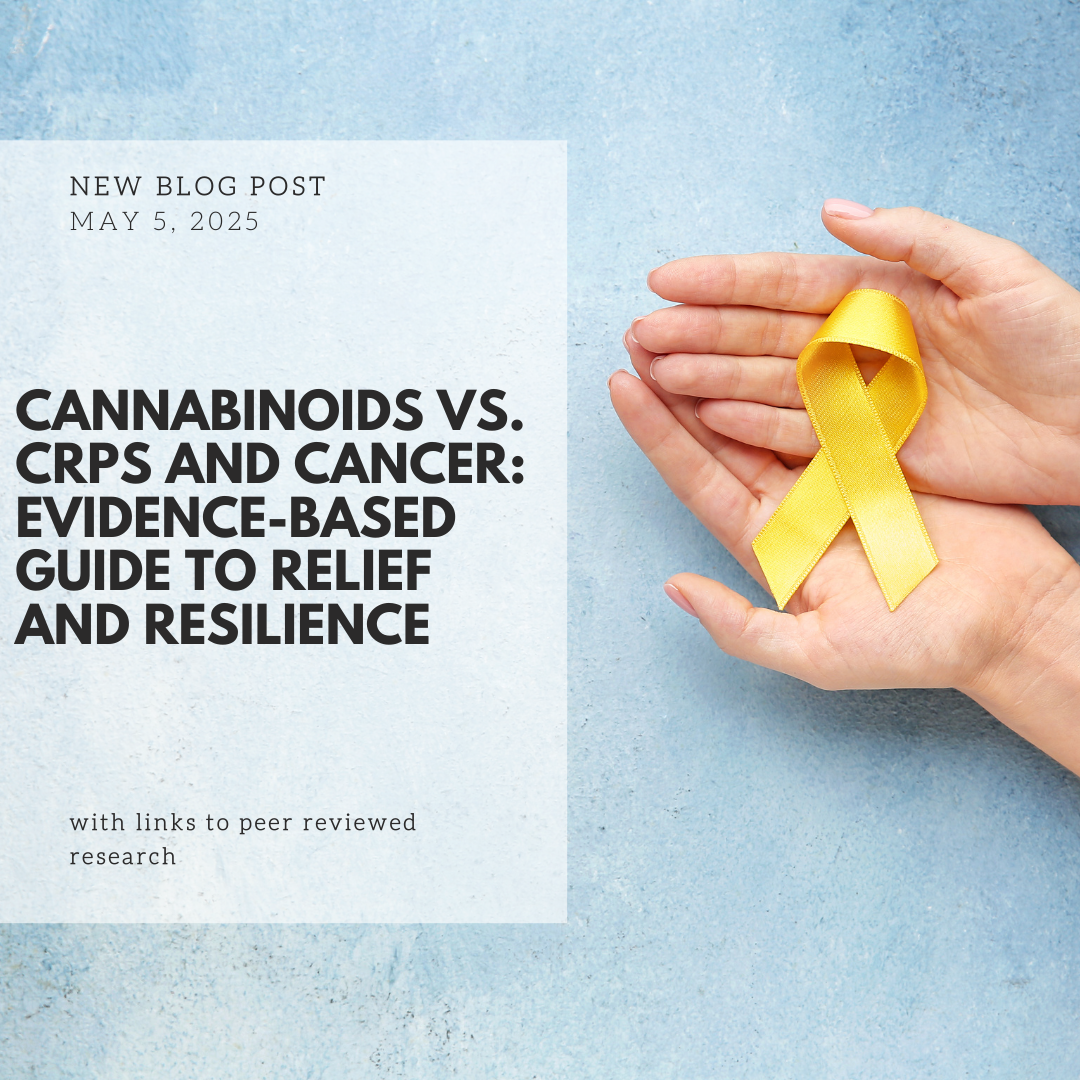Cannabinoids vs. CRPS and Cancer: Evidence-Based Guide to Relief and Resilience

Harnessing Cannabinoids for CRPS and Myxofibrosarcoma: An Evidence-Based Exploration
Complex Regional Pain Syndrome (CRPS) and myxofibrosarcoma present significant therapeutic challenges. Emerging research suggests that certain cannabinoids—specifically cannabidiol (CBD), cannabigerol (CBG), and cannabinol (CBN)—may offer adjunctive benefits in managing these conditions. This article delves into the current scientific understanding of these compounds' potential roles in alleviating symptoms associated with CRPS and myxofibrosarcoma.
CBD: A Multifaceted Cannabinoid
CRPS Management
CBD interacts with the endocannabinoid system, modulating pain and inflammation. A systematic review indicated that cannabinoids might result in a slight reduction in pain in CRPS type I and chronic secondary pain conditions .PMC
Oncological Implications
In vitro studies have demonstrated that CBD can inhibit cell viability and proliferation across various cancer cell lines, including those from the gastrointestinal and nervous systems . CBD also appears to promote apoptosis and reduce metastasis in certain contexts.PubMed
CBG: The Understudied Cannabinoid
Neuropathic Pain Alleviation
CBG has shown promise in preclinical models for alleviating neuropathic pain. In a study involving mice with cisplatin-induced peripheral neuropathy, chronic administration of CBG significantly reduced mechanical hypersensitivity without the development of tolerance . The analgesic effects were observed 24 hours after the last injection, suggesting sustained relief.MDPI+5PubMed+5PubMed+5
Anticancer Potential
CBG has demonstrated antiproliferative activity in colorectal cancer cell lines. Treatment with CBG led to increased apoptosis and cell cycle arrest, indicating its potential as an anticancer agent .PubMed
CBN: The Sleep-Promoting Cannabinoid
Sleep Enhancement
CBN is gaining attention for its sedative properties. A randomized, placebo-controlled study found that a 20 mg dose of CBN significantly improved sleep quality, reducing nighttime awakenings without causing daytime fatigue .PubMed
Potential Anticancer Effects
While research on CBN's anticancer properties is limited, some studies suggest it may exhibit cytotoxic effects on certain cancer cell lines. Further research is needed to elucidate its role in oncology.
Dosage Considerations
Optimal dosing of cannabinoids varies based on individual factors and the specific condition being treated. However, some general guidelines include:
-
CBD: Doses ranging from 200-600 mg per day have been used in clinical settings.
-
CBG: Effective doses are still being researched, but starting with lower doses and titrating up is advisable.
-
CBN: Doses around 20 mg have shown efficacy in improving sleep quality.
Note: Always consult with a healthcare professional before starting any new treatment regimen.
Conclusion
While cannabinoids like CBD, CBG, and CBN show promise in managing symptoms associated with CRPS and myxofibrosarcoma, further research is necessary to fully understand their efficacy and safety profiles. Healthcare providers should consider current evidence and individual patient circumstances when contemplating cannabinoid-based therapies.












Leave a comment